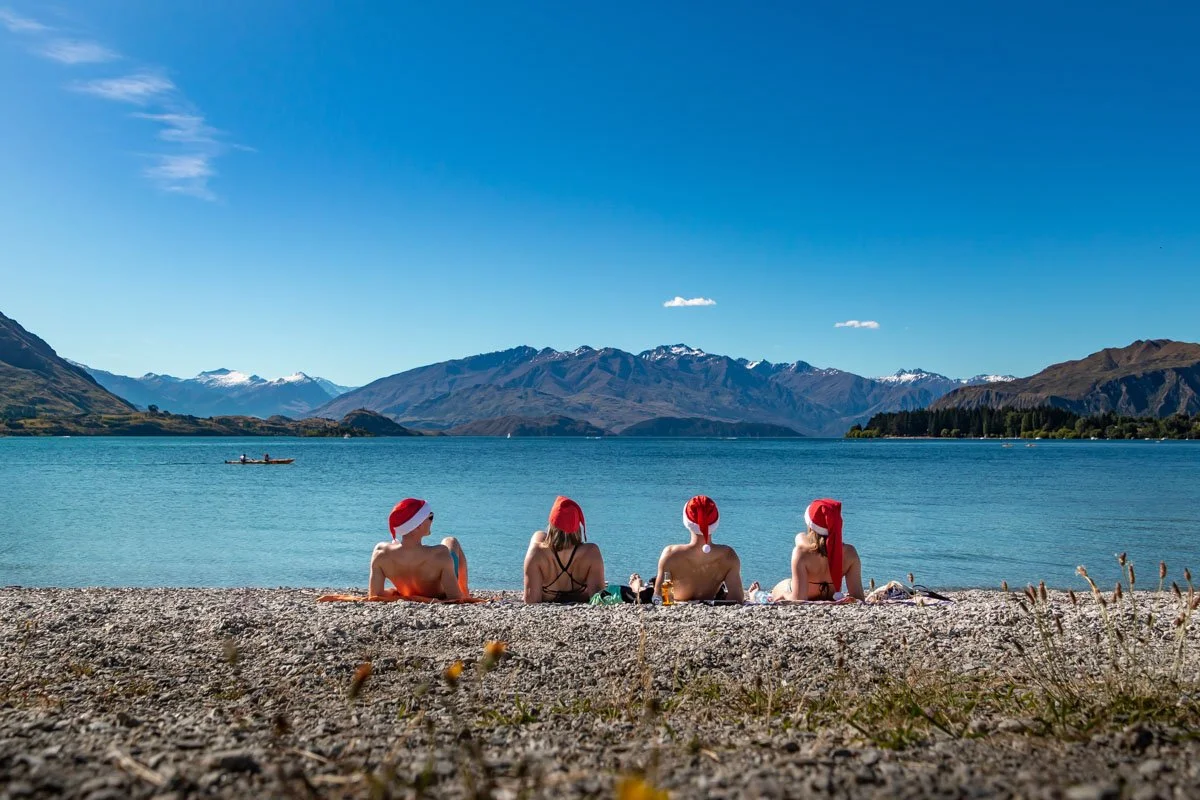For most applicants, securing skilled employment in New Zealand is one of the most important parts of the process and so, to help you along that path, we have curated some valuable tips, advice and tools to help you land the right job. Please make sure you also discuss these details with your consultant - another key resource.
For many people, securing an offer of employment is a big part of the move and often is one of the first things that you need to think about. To help you through the process we have compiled a list of useful tips and resources to aid you in the job search process. You can also contact your consultant directly for additional and personalised assistance.
CV’s and Cover Letters
Your CV and Cover Letter are often the first thing that employers will see when you display interest in a role. They can be the difference between an interview or a rejection but in the same breath will never be the thing that decides on whether you get the job or not. CV’s and Cover Letters are designed to get you an interview, but it is the interview that will determine whether you are successfully hired. For that reason, CV’s and Cover Letters need to do a very specific job and be carefully prepared. Here are some tips to help you get the most out of your CV and Cover Letter:
Keep them short and concise. Most CV’s should be 1 to 2 pages in length (3 if you absolutely have to).
Order them properly to highlight your most recent experience and relevant qualifications.
Your first page should be able to convey who you are, how to reach you, your key (relevant) qualifications and most recent work experience. If it takes an employer until th end of page 2 to discover this, you have lost them.
Avoid general language such as “dedicated team player that works well individually”. Be specific and clear as to who you are and how you work.
Don’t fill your CV with lists of tasks that you complete on a daily basis. List five of your key duties and then a couple of significant achievements. Most employers will know what your previous roles involved, what they want to know is whether you excelled in those roles or not.
Highlight relevant skills by expanding them or reordering them. The key here is to make your CV match the requirements of the role you are applying for.
When writing a Cover Letter, write it to that specific employer, using language that mirrors the job posting. Each Cover Letter should be slightly different and be addressed to that company specifically.
We have a sample CV that you can use, which provides for a nice, simple and clean look. Remember to use this as a starting point and to adjust and adapt the CV for each role that you apply for. You should also send a draft of your CV to your Consultant who will be able to give you some constructive feedback (sometimes brutal but necessary).
Interview Techniques
Unlike many countries, in New Zealand the interview is potentially the more important part of the job search process. We tend to place a much greater weighting on the interview process than we do the CV or Cover letter and so it pays to know how this might all work. It also never hurts (particularly if you have been out of the job search for a while) to do some practices runs with a friend or relative.
Depending on the role and level of skill or technical requirements, you may have one, two or even more interviews - each focussing on something different. It is common for most employers to have an initial discussion to simply get to know you and guage whether you are right for the role, followed by a second more in-depth discussion about your skills and experience. If you are then asked to come and meet the team, you know you are pretty much on board.
To help you become familiar and comfortable with the process consider these points:
Prepare well - do some research on the company and also prepare some questions that you want answered. Interviews should be an opportunity for both the employer and candidate to find out about each other and asking questions show you are interested and engaged.
Dress well - you can never be over-dressed but you can easily be under-dressed. Before the interview ask what the dress code is and then dress accordingly but if in doubt dress up not down.
Be punctual - arrive early but not too early. Generally it is wise to be 10 to 15 minutes early and this also gives you some wiggle room to find the location and deal with traffic. Make sure you research the location in advance so you know exactly where to go on the day.
Don’t be afraid of silence - if you are asked a question and provide an answer, don’t worry if there is a period of silence. Many people tend to want to fill that void with more discussion which often doesnt help and can make you more uncomfortable.
It’s okay to be nervous - nerves are all part of the process and most employers (good ones) will know that you are likely to be a little nervous. Find some common ground early on in the interview and ask questions as well - this gives you a chance to relax as the employer does the talking.
Take it seriously but don’t be rigid - interviews are a formal process but they dont need to be awkward or stiff. Treat the interview process with respect and do your research, dress well, prepare and be on time - however enjoy the process as well. It is a great opportunity to network, meet new people and talk about your achievements.
Job Search Sites
There are two main job search websites that cover roughly 85% of the New Zealand market place, these are:
Whilst both sites are very useful in terms of scouting the market for available positions, they may not offer an immediate pathway to landing the right role. In many cases positions are listed without the employer name and through a recruitment agency, making it difficult to apply if you do not hold a Visa already. Whilst we still encourage you to apply for any roles you can find on these sites, it is also a good idea to use both Seek and Trademe as a source for jobs that you then try and contact directly. If you can secure the company name, head to their website and try and make direct contact. Alternatively do some scouting through LinkedIn to try and make contact that way. You need to be clever in your search and dont simply rely on job boards to provide the answer.
LinkedIn and Networking
In many cases securing a job in New Zealand comes down to talking to the right person, in the right place at the right time. Networking is crucial and there are lots of ways you can do this. Start by having an active and accessible LinkedIn profile. You dont need to be posting every day but keep your page updated with topics relevant to your line of work. You can also use LinkedIn to research potential employers, make contact and message hiring managers. More and more exmployers are using LinkedIn to do some background research on applicants so make sure your work history and qualification descriptions are current and complete.
You can also attend a number of onshore networking events relevant to your industry. A little bit of internet scouting will find any that are open to you and it is a good place to meet hiring managers or people who may be interested in your skills.
Talk to friends or family who are already here. New Zealand is a small place and often you will know someone who knows someone…the more contacts you make and build the better your chances of securing a potential interview.
Employment Agreements
For the most part employment agreements in New Zealand are very standard and contain much of the same content. However when you have never seen them before, it pays to know what to look out for. The following list includes some key items that an agreement must contain and are things we would be checkign for you when you do secure a job offer:
the names of the employer and the employee (to make clear who are the parties to the agreement)
a description of the work to be performed (to make clear what the employee is expected to do)
an indication of the place of work
the agreed hours or an indication of the hours that the employee will work, this includes agreement on any or all of the following:
the number of hours
the start and finish times
or the days of the week the employee will work.
the wage rate or salary payable (must be equal or greater than the relevant minimum wage) and how it will be paid (if the employee won’t be paid in cash, this should be in the employment agreement or must be agreed in writing somewhere else)
a plain explanation of how to help resolve employment relationship problems including advice that personal grievances must be raised within 90 days
a statement that the employee will get (at least) time-and-a-half payment for working on a public holiday
for relevant employees, an employment protection provision to apply if the employer’s business is sold or transferred, or if the employee’s work is contracted out
any other matters agreed on, such as trial periods, probationary arrangements, or availability provisions
the nature of the employment if the employment is fixed-term.
We always check these details before any application for a Visa is filed because we obviously need to make sure everything is correct. However the above list will give you an idea as to what is required and what is important in terms of your legal relationship with an employer.
In some cases you will also be given an “Offer Letter” which may cover salaries, position, start dates and so forth (if they are not covered in the agreement). Offer letters are not mandatory however, so if you only recieve the agreement, dont be alarmed.
















